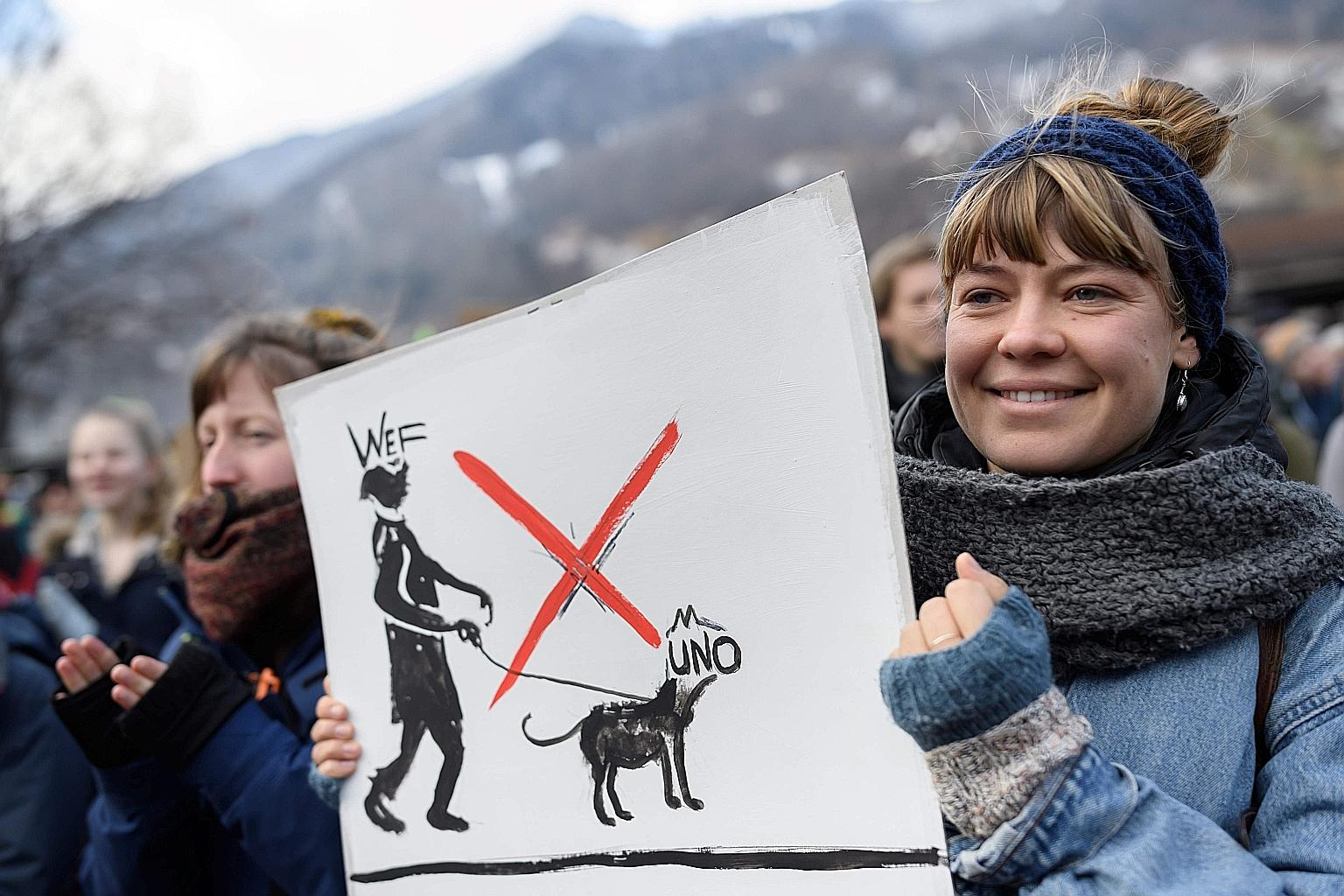Climate change, Middle East conflict to be discussed at World Economic Forum
Sign up now: Get ST's newsletters delivered to your inbox

A participant at a climate activists' gathering in Landquart, Switzerland, yesterday, before the start of a march to Davos.
PHOTO: AGENCE FRANCE-PRESSE
Follow topic:
PARIS • Global decision-makers are gathering in Davos for their annual meeting, with challenges facing the planet - from climate change to conflict in the Middle East - as imposing as the Alps that surround the Swiss resort.
Observers fear the World Economic Forum (WEF), starting tomorrow, will serve only to once again expose the differences between East and West, the United States and the European Union, as well as businesses and activists in combating the most burning threats at the start of the third decade of the 21st century.
But organisers seek to tackle the issues with a long list of guests from all sides. US President Donald Trump will likely hog much of the limelight, but also present for the second straight year will be Swedish teenage climate activist Greta Thunberg, whose famously hard stare at the US leader at the United Nations General Assembly symbolised anger over inaction on global warming.
Another issue set to darken the snowy Davos horizon is the risk of conflict between the US and Iran, as tensions spike following the US killing of a top Iranian commander and Iran's subsequent accidental downing of a Ukrainian airliner.
Iranian Foreign Minister Mohammad Javad Zarif, however, cancelled his planned participation at the four-day forum, removing any chance of a showdown - or even a meeting - with Mr Trump.
With Chinese Vice-Premier Han Zheng leading a top-level delegation from Beijing, the trade dispute between China and the US will also be at the centre of attention, even after last week's signing of a phase one deal that marked a truce after two years of tensions.
The key European figures present will be EU Commission chief Ursula von der Leyen and German Chancellor Angela Merkel, who may serve only to highlight the extent of the differences between Europe and the US on key issues.
"On climate change and on many global conflicts - such as the US conflict with Iran - US and European leaders disagree not just on the solution but also on the very nature of the problem," said Mr Jeremy Shapiro, research director of the European Council on Foreign Relations. He said that while EU leaders see climate change as an "existential challenge", Mr Trump considers it a "Chinese hoax".
The two sides are also at loggerheads over the Iran nuclear deal that was supposed to defuse the risk of conflict with Teheran.
In its global risk report issued ahead of Davos, the WEF singled out popular discontent over a lack of economic stability, climate change, unequal access to the Internet and healthcare systems under stress as the key challenges for humanity.
AGENCE FRANCE-PRESSE

